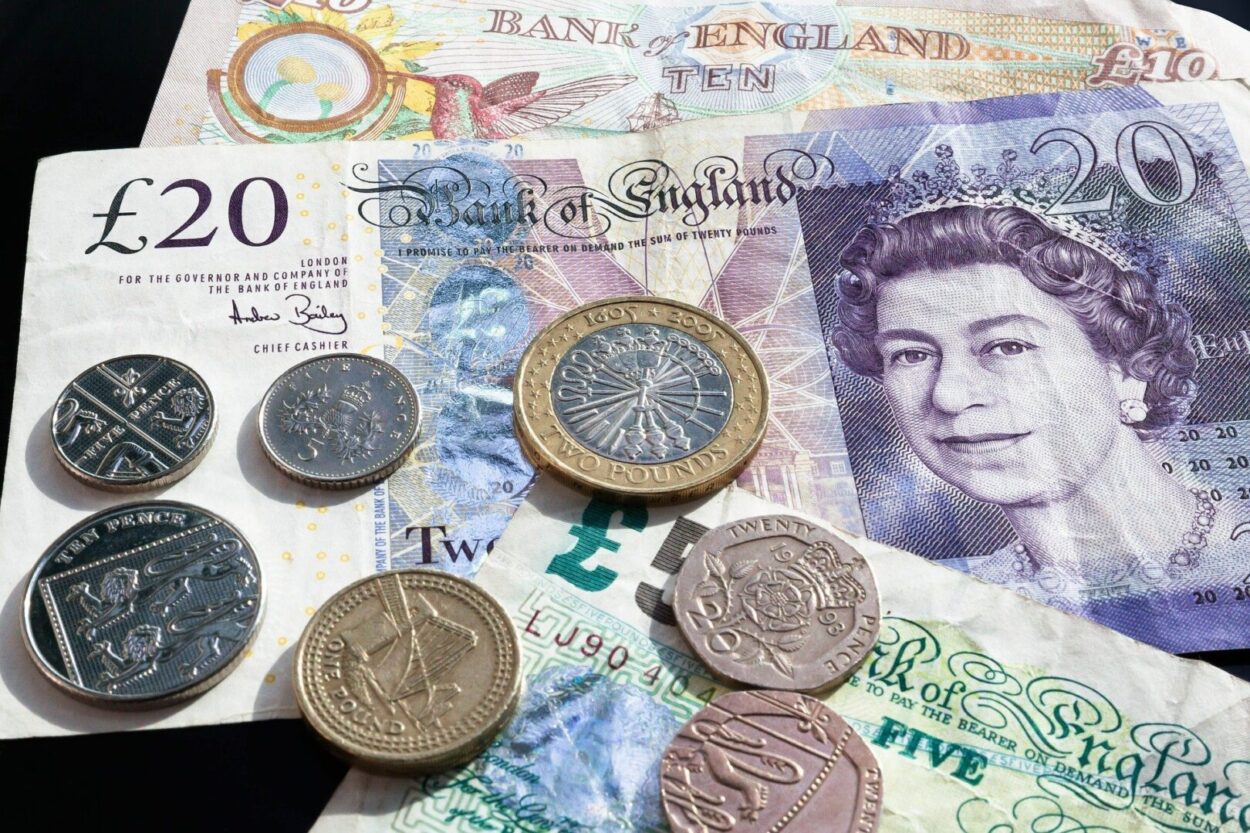Jasmine Birtles
Your money-making expert. Financial journalist, TV and radio personality.

Cash flow is tricky at the best of times for the self-employed – but now more than ever, freelancers and contractors are feeling the pinch.
Without the option of furlough to support your income during the coronavirus crisis, and a limited Self-Employed Income Support Scheme, cash flow management is more essential than ever before.
Discover how to improve your cash flow even when things are tight – and find ways to reclaim money you might not realise you’re entitled to have!
Over 60% of invoices are paid late every year. While it’s understandable businesses may be struggling right now, it’s important to make clients realise that you, too, are a business!
If you have a good relationship with your client, find out if there is a reason for the delay. For those that are struggling right now, offer to invoice smaller repayments (but with added interest) if you can afford to. This will help maintain a good relationship for the future.
But, if your late payment reminders are falling on deaf ears, you can always sell your invoices! Companies will buy your invoice, less a small fee (usually 10%). Then, it’s up to them to chase the payment which they’ll get instead of you. You can also increase the invoice amount to cover debt recovery costs (so you’re not really losing anything in reality).
Selling invoices is a great way to boost immediate cash flow. If you want to retain a relationship with your client, having the third party involved can take some of the tension out of your current situation, too.

Freelancers and contractors all dread tax time. It’s even worse with Payments on Account – paying for next year’s potential tax bill in advance.
We squirrel away a portion of each paid invoice, but you could’ve put away more than you’ll need.
Do your tax return now – rather than waiting until January. You’ll then know how much you have to pay HMRC. Anything left in your savings account above this level can be reinvested back into your business to alleviate cash flow.
If you already know how much you’ve got to pay HMRC, but you’re in dire need of using those savings for immediate business bills, defer your tax payments.
July 2020 Payments on Account can be deferred, interest-free, until January 2021. The same goes for your VAT payments, too. You’ll still need to do the VAT return – but won’t have to pay until March 2021.
This can help give you some breathing space if you have supplier invoices or business rent as immediate essential costs. Remember, however, if you’re spending what you’ve saved for taxes, you’ll need to re-save the same amount again by January 2021. If you can’t guarantee that’ll happen, it might be best to avoid deferring (or only using some of your tax savings rather than all).
If you’ve been a higher-rate tax payer within the last four years, you could be owed a pension tax relief refund. Find out if you’ve been claiming pension tax relief – if you haven’t, HMRC owe you a nice lump sum that’ll boost your cash flow!

Married couples can transfer £1,250 of one spouse’s personal allowance to the other spouse. Where one of you earns less than the annual Personal Allowance of £12,500, that person can transfer to their spouse or civil partner paying tax at the Basic Rate.
This’ll reduce what the tax paying spouse owes each year by £250. This allowance is also backdated up to three years from the claim date – even if you married part of the way through a year.
Find out more about Marriage Allowance and how to claim here.
As your income has changed in recent months, you may be eligible for some benefits that weren’t previously available to you.
If your income as severely dropped, for example, you could be eligible for Universal Credit.
Perhaps you opted out of receiving Child Benefit because you’ve been earning over £60,000. Now your income is lower, it’s worth applying to restart the benefit.
Use a benefits calculator like the one on Turn2Us to find out what else you could claim.
Many of us overpay our gas and electricity bills. We either accept estimates rather than real readings – or pay a set Direct Debit each month to regulate spending (and accumulate winter payments).
Firstly, update your readings if you always go by the estimate. Most companies tend to over-estimate, so you could have credit in your account.
Secondly, if your account is in credit, you can either reduce your monthly payments – or request a refund. You’re entitled to the money – it’s yours! – but may have to write a few emails to get there. Some people have hundreds of pounds sitting in their energy accounts, so it’s worth doing.
Finally, switch your energy suppliers if you can find a cheaper deal. This’ll reduce long-term costs and help you save on your monthly outgoings, too.
There may be other suppliers that owe you money, too. Find out more here!
Government loans through the various coronavirus business loan schemes could help cash flow in the short term – but they’re still loans. Luckily, for small businesses and loans up to £50,000, these are now 100% underwritten by the Government – reducing risk for your personal impact if you struggle to repay.
However, it’s still a loan. You’ll need to pay it back!
Instead, look for other local funding options. Many councils and local authorities are running grant schemes to help businesses stay afloat. For example, York City Council offered a micro-grant up to £1000 for self-employed sole traders and small businesses who couldn’t access the SEISS scheme.
Direct application to such schemes also means you’re likely to get the money faster than waiting for a Government scheme to pay out.

Paperwork is boring – but taking stock of your business expenses and finding where you can cut back is important. It’ll give you a clear idea of what you really spend each month – and help you slash costs.
For example, have you ever signed up to a software free trial, kept using it, and just let the money leave your bank account each month? There’s usually a cheaper tier you can switch to – or, if you hardly use the software, a cancellation can free up lots of cash.
Check your phone and internet bills, too. It could be time for a simple switch to save on monthly bills – going for a SIM-only deal if your handset is still good is a great way to slash the cost of expenses.
Cutting back on everything might seem like a good plan for the short-term – but consider the long-term impact. You might employ a virtual assistant, for example. Instead of cutting their contract, look at how they can help you (looking at your budget, for one thing!). Find ways to use them that saves you time so you can focus on generating more business to improve cash flow.
It’s a tough time for all self-employed contractors right now – so you’re not alone. The new MoneyMagpie Messageboard is here to help! Get stuck in with like-minded people to discover more cash flow management ideas and ways to make money.
Each week, the best post wins a £25 Amazon voucher – a nice little extra for your cash flow, right?!

Deferring paying tax is an option but the danger is longer you delay to pay the difficult it will get to stay on top of debt. There is also potential danger of incurring interest on delayed payment.